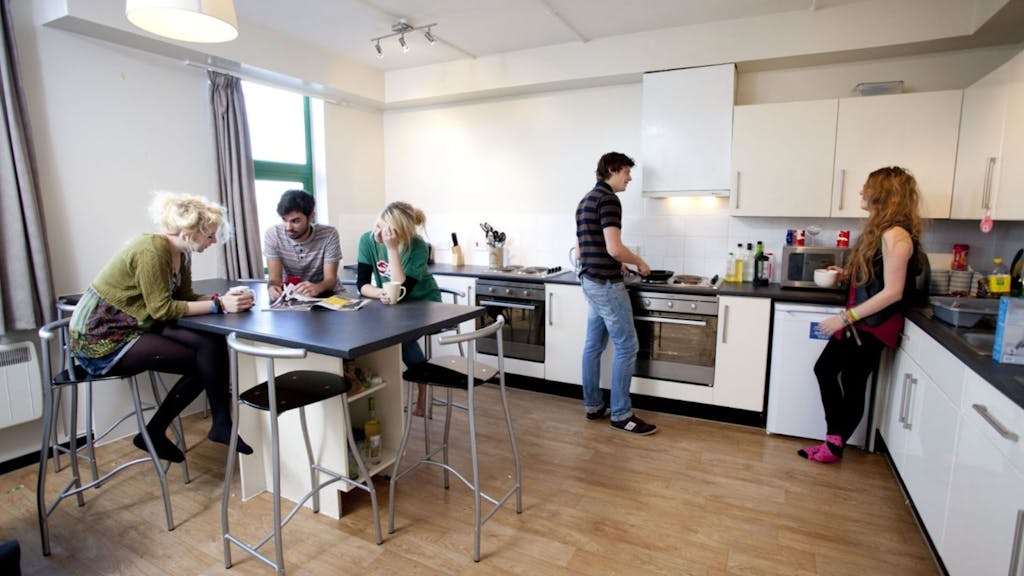
Starting university can be both exhilarating and overwhelming, as you step into a new chapter filled with experiences and hurdles to overcome. To provide you with a solid foundation, we’ve compiled a comprehensive list of 100 common questions about your university journey that you need to know in the UK.
Some of these questions might seem elementary, while others may introduce unfamiliar terms. Covering topics from pre-university preparation to post-graduation prospects, we’re confident that this FAQ will furnish you with valuable insights and guidance every step of the way.
Before You Begin University:
How do I choose the right university and course for me?
Selecting the ideal university and course involves considering factors such as your interests, career goals, location, and course curriculum. The UCAS website (backlink to ucas website) offers a helpful guide on this topic.
How do I apply to university?
The university application process entails completing an application form, drafting a personal statement, and submitting your qualifications and references. UCAS also provides a comprehensive guide on how to navigate the application process.
What is Clearing?
Clearing is a procedure where universities and colleges fill remaining course vacancies after the main application cycle concludes. Once again, UCAS offers valuable resources to guide you through Clearing.
What is Adjustment?
Adjustment permits students who have exceeded their expected results to explore alternative courses or universities with higher entry requirements.
When is the deadline to apply to university?
Typically, the deadline to apply to university falls in January of the year you intend to commence your course. Refer to the UCAS website for specific deadlines pertaining to your chosen course and university.
What are the entry requirements for university?
Entry requirements vary based on the course and university, usually comprising a minimum set of qualifications or grades. Consult your university for precise entry criteria.
How do I prepare for university?
Preparation involves researching your course and university, honing academic skills, and addressing practical aspects such as accommodation and finances.
What should I bring to university?
Packing essentials depends on your accommodation and personal preferences. Your university will provide guidance on necessary items.
What is student accommodation like?
Student accommodation varies, commonly encompassing shared options like halls of residence or shared houses.
Do I need to buy textbooks for university?
Textbook necessity varies by course and university. Some courses furnish textbooks, while others require you to procure them independently.
Starting University
What is enrolment?
Enrolment entails formally registering as a student with your university, typically involving personal information submission and ID verification.
What is induction?
Induction acquaints you with your course, university, and peers, usually conducted within the initial days of starting university.
How do I make friends at university?
Socialising can be facilitated through attending events, joining clubs/societies, and engaging in extracurricular activities.
What is a personal tutor?
A personal tutor offers academic support and guidance throughout your course.
What is a lecture?
Lectures involve a lecturer delivering presentations on specific topics.
What is a seminar?
Seminars entail small-group discussions and debates on particular subjects.
What is a tutorial?
Student Tutorials offer one-to-one or small-group support and guidance on specific topics.
What is a student ID card?
A student ID card serves as proof of your student status, you can also received student discounts from specific shops.
Freshers Week & Freshers Fairs:
What is Freshers Week?
Freshers Week encompasses a series of social events, activities, and induction sessions for new students.
What is a Freshers Fair?
A Freshers Fair showcases clubs, societies, and local businesses to new students.
What should I do during Freshers Week?
Participate in social events, induction sessions, and extracurricular activities.
How do I find out about Freshers Week events?
Check your university’s website or social media channels for event information.
What is a wristband for Freshers Week?
A Freshers Week wristband grants access to various social events throughout the week.
How do I get a wristband for Freshers Week?
Wristbands can typically be purchased through your university, student union, or designated events company.
What should I wear to Freshers Week events?
Dress code varies by event; refer to your university for specific guidelines.
How do I avoid drinking too much during Freshers Week?
Exercise moderation, alternate alcoholic beverages with soft drinks, and ensure you eat before and during drinking sessions.
Accommodation:
What are the different types of student accommodation?
Options include halls of residence, shared houses, private rented accommodation, and student apartments.
What is the cost of student accommodation?
Cost varies by type and location; consult your university for precise figures.
How do I apply for student accommodation?
Apply through your university’s accommodation office, adhering to the specific application process.
What is a tenancy agreement?
A legal document outlining the terms and conditions of renting a property.
What should I look for in a tenancy agreement?
Check for details such as rent, deposit, and tenancy duration.
What is a deposit for student accommodation?
A sum paid to cover potential damages or unpaid rent at the end of the tenancy.
How do I get my deposit back for student accommodation?
Ensure the accommodation is left in good condition and settle any outstanding rent to facilitate deposit return.
Health and Wellbeing:
What health services are available at university?
Many universities offer general medical care and mental health support through on-campus health centers.
How do I register with a doctor at university?
Contact the health center or medical practice on campus for registration guidance.
What is student well-being?
Overall student health and happiness, encompassing physical, mental, and emotional aspects.
How can I improve my student well-being?
Prioritize self-care, maintain a healthy lifestyle, nurture relationships, and seek support when needed.

Money Matters:
How much does university cost?
Cost varies by course and university; consult your institution for specifics.
How do I pay for university?
Options include student loans, bursaries, and scholarships; explore the Student Finance website for guidance.
What is a student loan?
A loan aiding in tuition fees and living costs, repayable post-graduation.
What is a student bursary?
Financial support not requiring repayment.
What is a student scholarship?
Financial aid without repayment obligation.
What is a student bank account?
An account tailored for students, offering features like interest-free overdrafts.
Studying and Learning:
What is independent learning?
Self-directed learning fostering autonomy and responsibility.
What is a study group?
A collaborative learning environment among students.
What is plagiarism?
Using others’ work without proper attribution.
How do I avoid plagiarism?
Ensure proper citation and referencing.
What is a dissertation?
A substantial academic project typically completed in the final year.
Careers and Employability:
Jobs for students?
You can find flexible
What is a careers service?
Support service offering career guidance and employability advice.
What is work experience?
On-the-job

